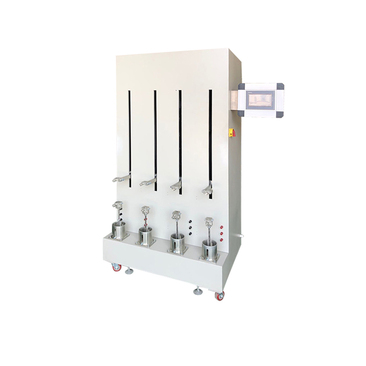winding and torsion tester companies
Overview of Winding and Torsion Tester Companies
In the realm of material testing, winding and torsion testers play a crucial role in assessing the mechanical properties of various materials, particularly in industries such as manufacturing, aerospace, automotive, and construction. These testing machines measure how materials respond to twisting and winding forces, providing invaluable data that engineers and designers use to ensure safety and functionality in their products. As demand for high-quality testing equipment grows, numerous companies have emerged in this specialized sector, each offering unique solutions to meet the diverse needs of their customers.
Key Players in the Winding and Torsion Testing Market
Several companies are recognized as leading manufacturers of winding and torsion testing machines. Among them is Instron, a global leader in materials testing systems that provides advanced solutions covering a vast array of materials and applications. Instron’s torsion testing systems are designed to evaluate the elastic and plastic behavior of materials under twisting forces, ensuring optimum material performance in real-world applications.
Another prominent name is ZwickRoell, known for its high-precision testing equipment. ZwickRoell’s torsion testing machines are renowned for their accuracy and reliability, making them a preferred choice for industries that require meticulous material testing. Their equipment is often used in academic research and quality control processes for manufacturing, underscoring the critical role of reliability in material testing.
Shimadzu Corporation, a powerhouse in the scientific instrumentation sector, also offers a range of winding and torsion testers. Their innovative approach integrates advanced technology, enabling users to conduct comprehensive tests that not only measure resistance to twisting but also provide insights into other mechanical properties like fatigue and strength.
Innovations in Winding and Torsion Testing
The advancement of technology in recent years has brought about significant improvements in the design and functionality of winding and torsion testing machines. Many manufacturers are now incorporating digital interfaces that facilitate data collection and analysis. This integration allows for real-time monitoring of test parameters, making it easier for engineers to assess material behavior quickly and accurately.
winding and torsion tester companies

Furthermore, the use of software solutions in conjunction with testing machines enables detailed analysis and reporting of test results. Companies like MTS Systems Corporation have developed sophisticated software that allows users to model and simulate material behavior under various loads. This capability is crucial for predicting performance in applications where materials are subjected to dynamic stresses.
Meeting Industry Standards and Regulations
As industries increasingly prioritize safety and performance, compliance with international testing standards becomes essential. Companies such as Tinius Olsen have established themselves by developing testing machines that meet ASTM, ISO, and other regulatory standards. Ensuring adherence to these norms not only supports product safety but also ensures manufacturers avoid costly recalls and liabilities.
The Future of Winding and Torsion Testing
Looking ahead, the market for winding and torsion testers is expected to expand significantly as industries pursue higher efficiency and material optimization. The rise of smart manufacturing and Industry 4.0 principles will likely drive further innovations, with more companies looking to integrate IoT technology into their testing equipment. This transformation will enable continuous monitoring and predictive maintenance of materials, setting new benchmarks in quality assurance.
Moreover, as sustainability becomes a focal point across industries, the demand for materials that are both high-performing and environmentally friendly will heighten. Testing companies will need to adapt by developing machines capable of analyzing new types of sustainable materials and composites.
Conclusion
In summary, winding and torsion tester companies play an integral role in various industries by providing essential tools for evaluating the mechanical properties of materials. With continuous advancements in technology and a strong focus on compliance and sustainability, these companies are well-positioned to meet the evolving needs of manufacturers around the globe. As the market grows, the importance of reliable and precise testing equipment will only increase, highlighting the critical contributions of these specialized testers in ensuring the safety and efficacy of countless products.
-
Why the Conductor Resistance Constant Temperature Measurement Machine Redefines Precision
NewsJun.20,2025
-
Reliable Testing Starts Here: Why the High Insulation Resistance Measuring Instrument Is a Must-Have
NewsJun.20,2025
-
Flexible Cable Flexing Test Equipment: The Precision Standard for Cable Durability and Performance Testing
NewsJun.20,2025
-
Digital Measurement Projector: Precision Visualization for Modern Manufacturing
NewsJun.20,2025
-
Computer Control Electronic Tensile Tester: Precision and Power for the Modern Metal Industry
NewsJun.20,2025
-
Cable Spark Tester: Your Ultimate Insulation Assurance for Wire and Cable Testing
NewsJun.20,2025
 Copyright © 2025 Hebei Fangyuan Instrument & Equipment Co.,Ltd. All Rights Reserved. Sitemap | Privacy Policy
Copyright © 2025 Hebei Fangyuan Instrument & Equipment Co.,Ltd. All Rights Reserved. Sitemap | Privacy Policy
